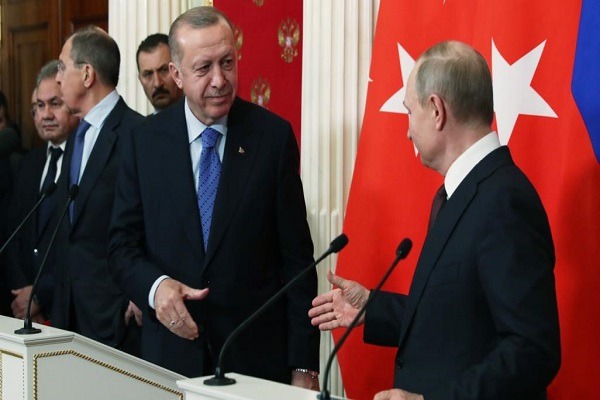In an interview with the website of the Strategic Council on Foreign Relations, Dr Reza Abedi Gonabad noted that when the agreement was reached between Russia and Turkey, analysts said the truce would be fragile.
He explained: Part of the reason relates to the nature of the terrorist groups because they are not a single group nor they are integrated. Another part goes back to Turkey’s ambitions and efforts in Syria. On the other hand, the Russian and Syrian governments have concluded that the last strongholds and bases of terrorist groups in Syria located in Idlib should be seized.
No Consensus on Maintaining Long-Term Truce in Idlib
Referring to the Russian Foreign Ministry’s statement that terrorists present in Idlib Province by taking advantage of the respite created by the truce are re-arming and carrying out attacks against Syrian military forces, the regional developments analyst said: It seems we are in a state of tranquillity at present but in the coming months the debate on Idlib will surely be heated again. Because Turkey will continue to pursue its interests in Idlib, the game of terrorist groups, the interests of the Americans and the actions they pursue, as well as the kind of attitude Russia has, particularly towards Bashar Assad, show that there is no consensus on maintaining this situation in the long run. Sooner or later this fragile ceasefire will crumble in Idlib.
None of Turkey’s Terms Were Realized in Russia Deal
Abedi Gonabad, speaking about the actions taken by the Turkish army in northern Syria, stated: When discussing widespread advances in Idlib, Mr Erdogan declared in an ultimatum that if the withdrawal did not take place, they would launch a military attack by the end of February! But nothing special happened and Turkish army suffered heavy casualties. This defeat shattered the grandeur of the Turkish army because they always depicted the strength and power of their army inside and outside the region, calling it the Army of Muhammad and the Army of Islam. However, not even one of their terms was fulfilled in the deal with Russia. We also witnessed how Putin humiliated Erdogan.
He emphasized that one cannot count on the stability of the situation in Idlib in Syria, adding that a serious divide between Russia and Turkey over Libya should be borne in mind and that the Libyan events could also affect the debate on Idlib and northern Syria.
“Turkey has always sought to maintain its historical influence in regions separated from the Ottoman Empire,” the professor said, adding that Turkey has historically had a series of claims on northern Syria. The Turks have the same attitude towards northern Iraq and even part of North Africa: Discussions that follow the “strategic depth” of Former Prime Minister Ahmet Davutoglu and Neo-Othomanism.
He added that Turks regard from Bosnia to China their area of influence, adding: “After what happened with the Syrian crisis in 2011 the Turks were all trying to overthrow Bashar Assad’s regime in Syria. They had widespread support for opposition to Assad’s regime; this sparked challenges inside Turkey several times. Meantime, some journalists and political currents critical of Mr Erdogan’s intervention within the Ottoman theory made exposures and published films and documents showing the Turkish Intelligence Service and Turkish military providing support to terrorist groups. In this respect, several Turkish journalists were summoned to court and charged with treason and sentenced to 10 to 15 years in prison.
Turkey Looking for Bargaining Chip in Syria
The professor added that Turkey’s plans to overthrow Bashar Assad faced defeat after the stronger presence of Iran and Russia in 2015. Therefore, the Turks are looking for concessions on Syria’s future. They have realized that Bashar Assad and the Alawite government structure in Syria remain viable and should be able to have a bargaining chip in Syria until the power-sharing talks are launched and peace is accomplished. Turkey’s interests are maintained and they can gain political and economic concessions and their concerns about the Kurds will also be removed.
Abedi Gonabad said that part of the reason for Turkey’s actions was Erdogan’s blackmailing of Western and European countries, saying he is trying to portray himself a defender of the interests of the European Union and at the same time get concessions over the issue of refugees and immigrants from the European Union. They also want to gain political and economic concessions from the Greeks and the Bulgarians. Turkey wants an EU visa for its citizens be lifted and at the same time to overshadow the position of Iran and Russia in Syria.










0 Comments